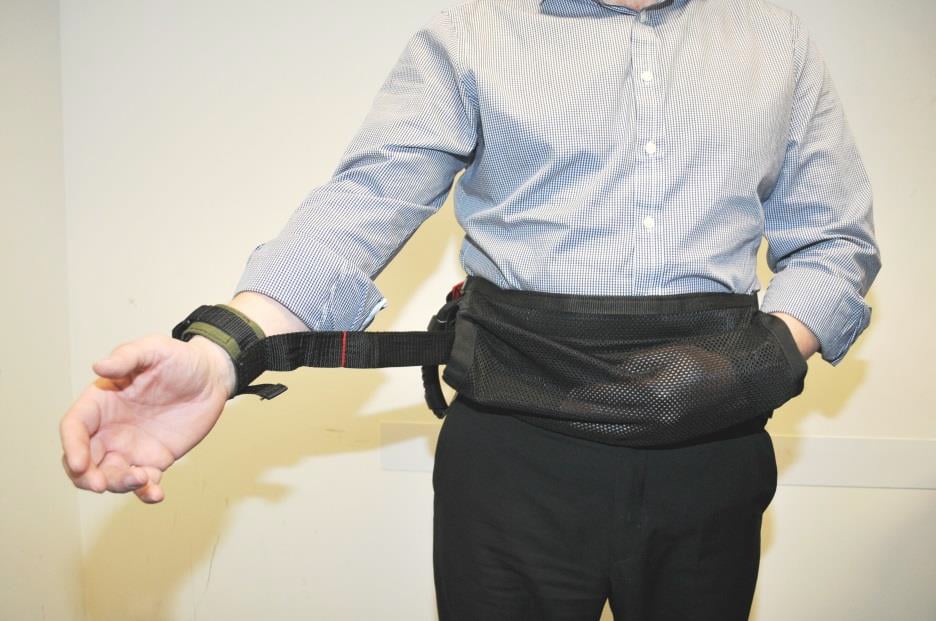Waist Restraint Belt (WRB)
Restrain With Dignity The SES Waist Restraint Belt
The Waist & Leg Restraint Belt System’s (WLRB) design has evolved by listening to what users want specifically from a restraint system.
With this in mind, and in consultation with professionals from the Police, Prison Service, Immigration Escorting Services, and of the NHS Mental Health Secure Services, the system takes into consideration the psychology, safety, and dignity of the restrained individual whilst the safety for both escort and individual, is greatly enhanced, and the liability risk reduced.
Made in the UK, with quality materials, using Ministry of Defence approved manufacturing and quality assurance processes, ensures that the WLRB will meet strenuous user requirements. The WLRB offers a visually, and psychologically low-profile restraint system that allows an individual to sit and travel comfortably, for extended periods, but still be securely restrained.
Advantages of the WLRB system:
- Made in the UK
- Presents a low visual profile when in use, especially when in public
- Proven psychologically to reduce stress in the individual
- Ease and speed of application aided by colour coding
- Strong & lightweight but secure
- Avoids dangerous posture positions
- Can be removed quickly & easily in case of medical emergency
- Easily cleaned & sanitized by machine washing
- No metallic parts in Type A & MRI for ease of scanning after being searched & secured or for medical procedures involving X rays, CT and MRI scanners
- Lockable waist buckle is available if required
- Fits waist sizes from 18” – 70”
- Max security position precludes the ability to pick up/secrete anything
- Hook & Loop system alerts escorts if attempts to escape are being made
- Gives a comfortable but secure method for:
- Moving the individual
- Transporting in vehicles, trains or aircraft and
- Sitting during interviews or court appearances
- Gives the escort the ability to allow greater, but controlled movement for:
- Eating
- Toilet functions
- Medical procedures
- Religious practices
- Fingerprint processing
- Modifying individuals mental attitude



